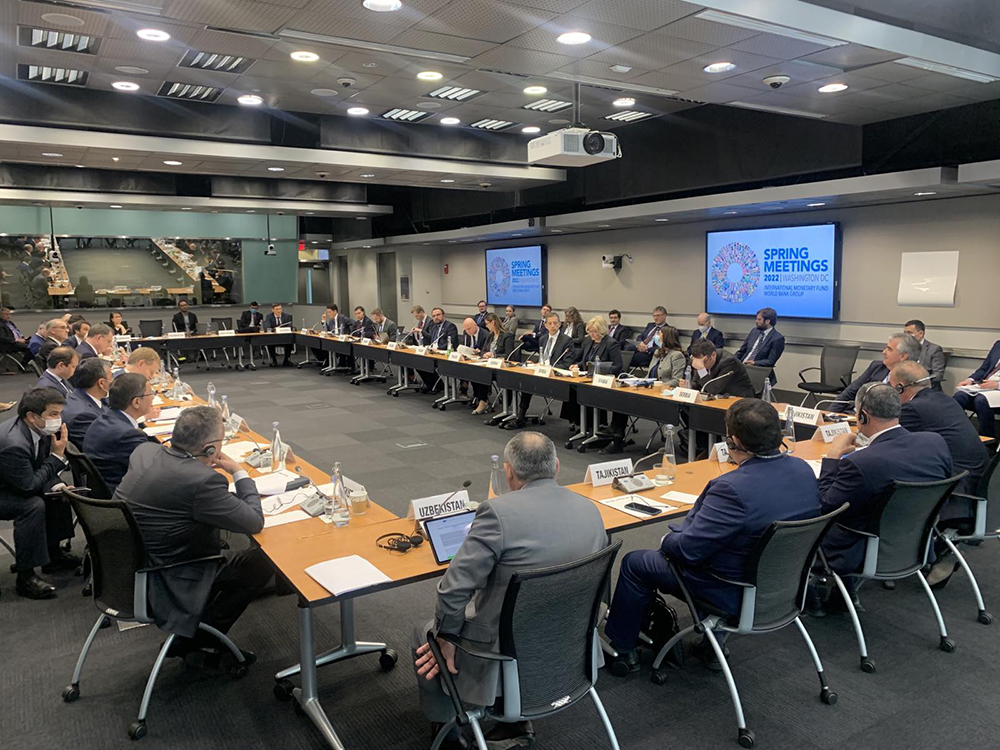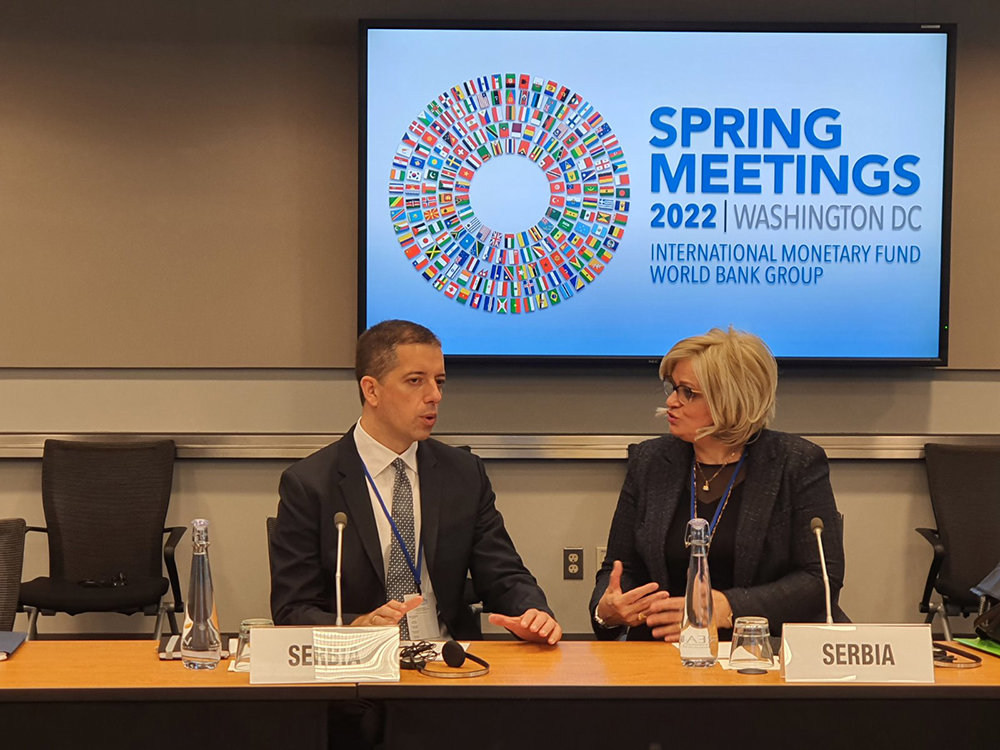23/04/2022


Serbia’s delegation at the Spring Meetings of the IMF and the World Bank Group, led by NBS Governor Jorgovanka Tabaković, met with high representatives of these institutions and a great number of investors. Serbia’s Ambassador to the USA Marko Đurić also attended the meetings. The key assessments were presented at the meetings with Mr Bo Lee, the Deputy Managing Director at the IMF, and Mr Alfred Kammer, the Director of the European Department at the IMF. Governor Tabaković and Ambassador Đurić also met the IMF’s team for Serbia led by Mr Jan Kees Martijn. Important talks were also held at the meetings of the International Monetary and Financial Committee and the joint Development Committee, within the Swiss Constituency.
High IMF officials praised the Serbian authorities for the excellent results achieved even in an environment of major shocks and gave the following assessments:
In view of everything done in Serbia on the macroeconomic front up to the pandemic, including the fast and efficient response to risks from the global market, it was assessed that Serbia’s medium-term outlook remains favourable.
At the start of talks, Governor Jorgovanka Tabaković informed high IMF officials about the outcome of the April presidential election in Serbia and the fact that President Aleksandar Vučić won an enormous support of the people despite the difficult current global situation which has affected all countries. She explained that President Vučić is the only president in Serbia who won a vast majority in two successive electoral cycles, without the need for a runoff.
Having stated that Serbia once again confirmed that it has a good management system in crisis situations, Governor Jorgovanka Tabaković highlighted that Serbia had been building up its reserves and defence mechanisms for extraordinary situations in a timely fashion, as also witnessed by high FX reserves and geographic and project diversification of investment. As the stability of the exchange rate is important, not even during the previous two months or during the previous episodes of elevated international risks did we allow that external shocks lead to excessive exchange rate volatility. The Governor underlined that well-calibrated politics of President Vučić, who is devoted to all activities important for stability, and Serbia’s growth, along with continued full coordination of all policies will create the maximum of favourable business conditions in Serbia even in the current global uncertainties. Ms Tabaković highlighted that stability has no alternative.
Governor Jorgovanka Tabaković also said that Serbia is an important factor of regional connectedness and remains committed to cooperation, agreements and the Open Balkan initiative. Ambassador Marko Đurić, who already had an opportunity to meet Mr Bo Lee at one of the meetings of the Swiss constituency, pointed out that Serbia always chooses the path of cooperation. By participating in the Open Balkan initiative, Serbia unambiguously confirms its commitment to cooperation and prosperity of the region. Namely, even in the current conditions, Serbia has been providing some products that are in short supply to countries in the region.
Since this was the first encounter with Mr Bo Lee and Mr Alfred Kammer, Governor Jorgovanka Tabaković acquainted them, in separate meetings, with Serbia’s transformation since 2012 until the beginning of the pandemic. On that occasion she pointed out that:
All that was achieved before the outbreak of the pandemic, which created room for good management in pandemic circumstances.
Looking back on two pandemic years and what was done in that period, Ms Tabaković pointed out:
All this helped to preserve the production capacities, labour market and system liquidity, i.e. the foundation for growth.
In terms of challenges for policy makers which are assessed to be numerous and coming from the global market, such as the impact of global factors on inflation and the necessity of ensuring energy stability, Governor Tabaković listed some of the measures taken in Serbia to constrain these effects:
In addition to influencing inflationary pressures spurred by global factors, during the current events, the NBS also helps liquidity management, supplies banks more with foreign cash and penalises forbidden actions of some exchange dealers. In this way the NBS prevented panic which can break out in such situations.
During the Spring Meetings, participants from a great number of countries analysed never greater challenges which are shaping the international environment. The estimate was that inflation on a global scale was spurred by rising prices of food and global energy prices, and that it currently poses a big challenge to every economy. It was emphasised that a huge economic shock affecting global economic outlook will leave its mark on economic recovery of every country in the form of higher global prices of commodities, effects on global financial conditions, disturbed supply chains, including the distrust channel. The conclusion was that all individual countries’ efforts must be joined with international efforts, since cooperation is always necessary, particularly under current circumstances.
Governor’s Office